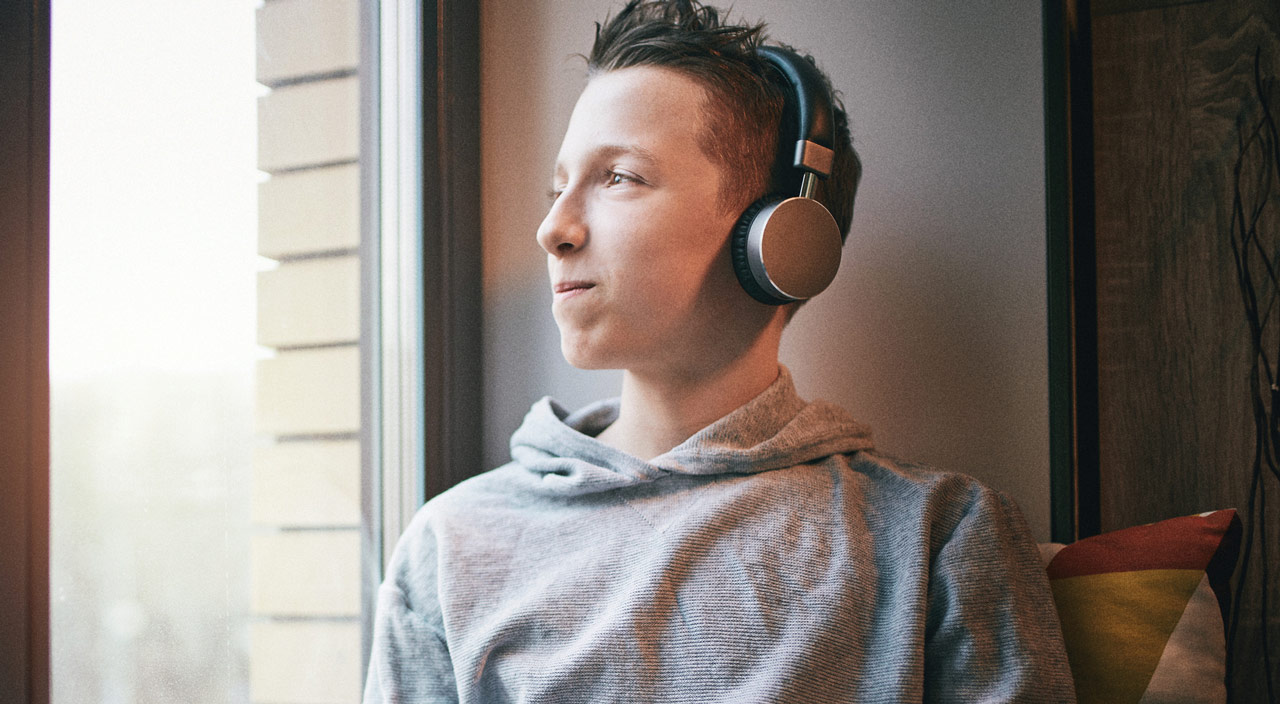“A key task for adolescents is to understand who they are as individuals, and music helps define us,” explains Andy Freedman, MA, MT-BC, Allied Clinical Therapist and board-certified music therapist at Penn Medicine Princeton House Behavioral Health’s Moorestown site.
“Throughout the adolescent years, we tend to attach to music in a way unlike any other point in life,” he adds. “Music becomes transitional as teens work through the trials and tribulations of adolescence. It can create a healing environment during a time of uncertainty.”
The COVID-19 pandemic has amplified that uncertainty, leaving many teens with additional stress and higher levels of anxiety and depression. According to Freedman, music can provide emotional relief and help build bonds with others, which is especially needed these days. Listening to music together can still be done virtually—and right now, it’s the format for the outpatient music therapy group at Princeton House.
Virtual Music Therapy
Throughout the pandemic, teens and other outpatients at Princeton House have participated in weekly music therapy via a secure telehealth videoconferencing platform. Sessions begin with an icebreaker and mindful listening to calming or grounding music. Patients often have the opportunity to suggest a song that’s meaningful to them to share with the group, and Freedman acts as a “therapeutic DJ” to facilitate discussion around it.
Group activities have also included progressive storytelling to music and using a shared screen to write song lyrics, which Freedman puts to music. The sessions help patients identify and work through emotions, with music as a tool to help them ride the wave of those emotions.
“Relating to teens through something they enjoy can help build the therapeutic relationship,” adds Freedman. “Music can also be especially helpful for patients who struggle with verbal expression.”
For ideas on how to incorporate music into patient therapy sessions, visit the American Music Therapy Association’s website at musictherapy.org.
Creating a Mental Health PlaylistAs “pandemic playlists” have become popular, Freedman notes that mental health playlists can be particularly beneficial for those who are struggling. In the digital age, creating these playlists has become easier using music apps. Options include creating playlists of songs that:
“Listening to a happy song when you’re angry might make you feel invalidated,” says Freedman. “But if you’re playing music that matches a difficult emotion, it’s important to be mindful of mood so you know when to switch gears to help you achieve a more desired emotional state.” |
Article as seen in the Spring 2021 issue of Princeton House Behavioral Health Today.




